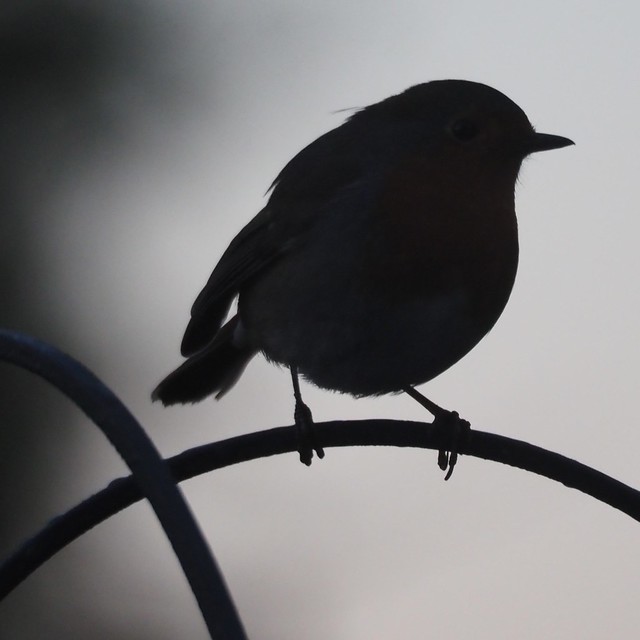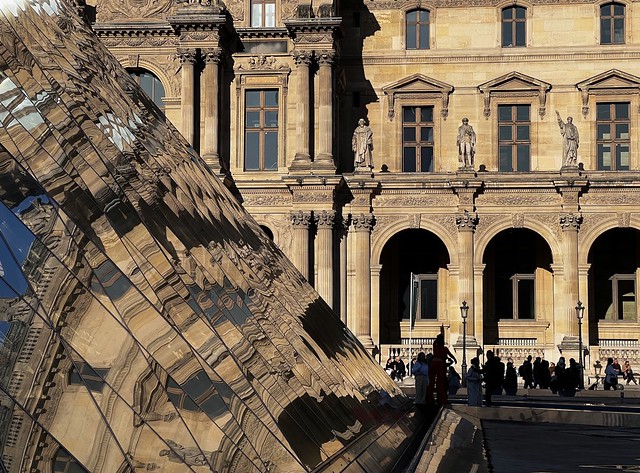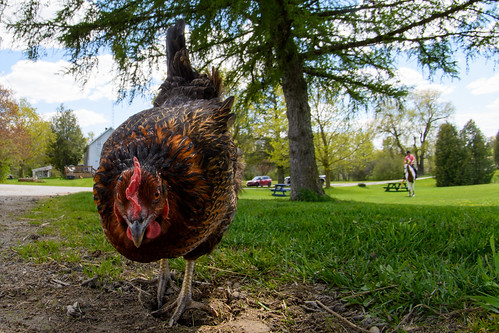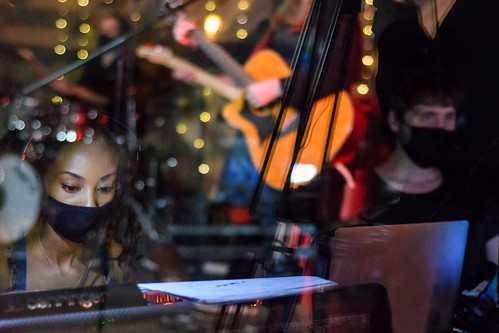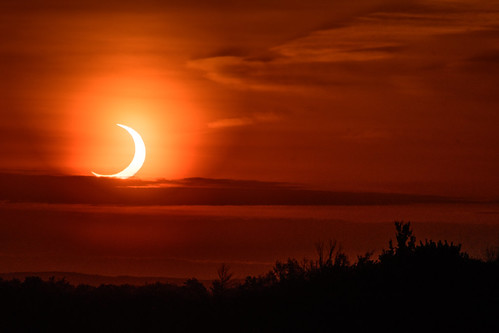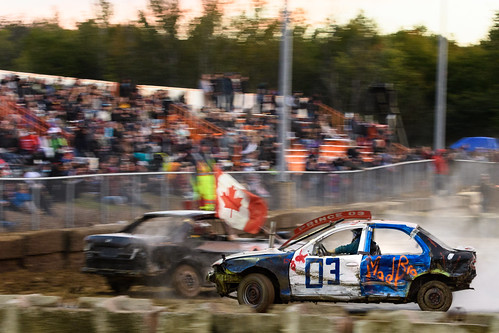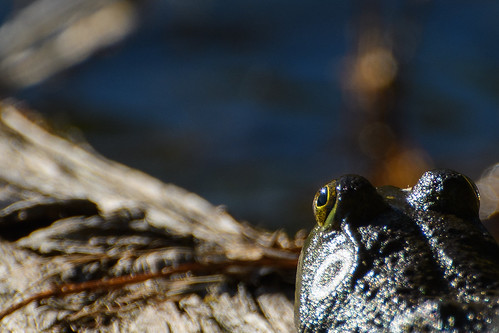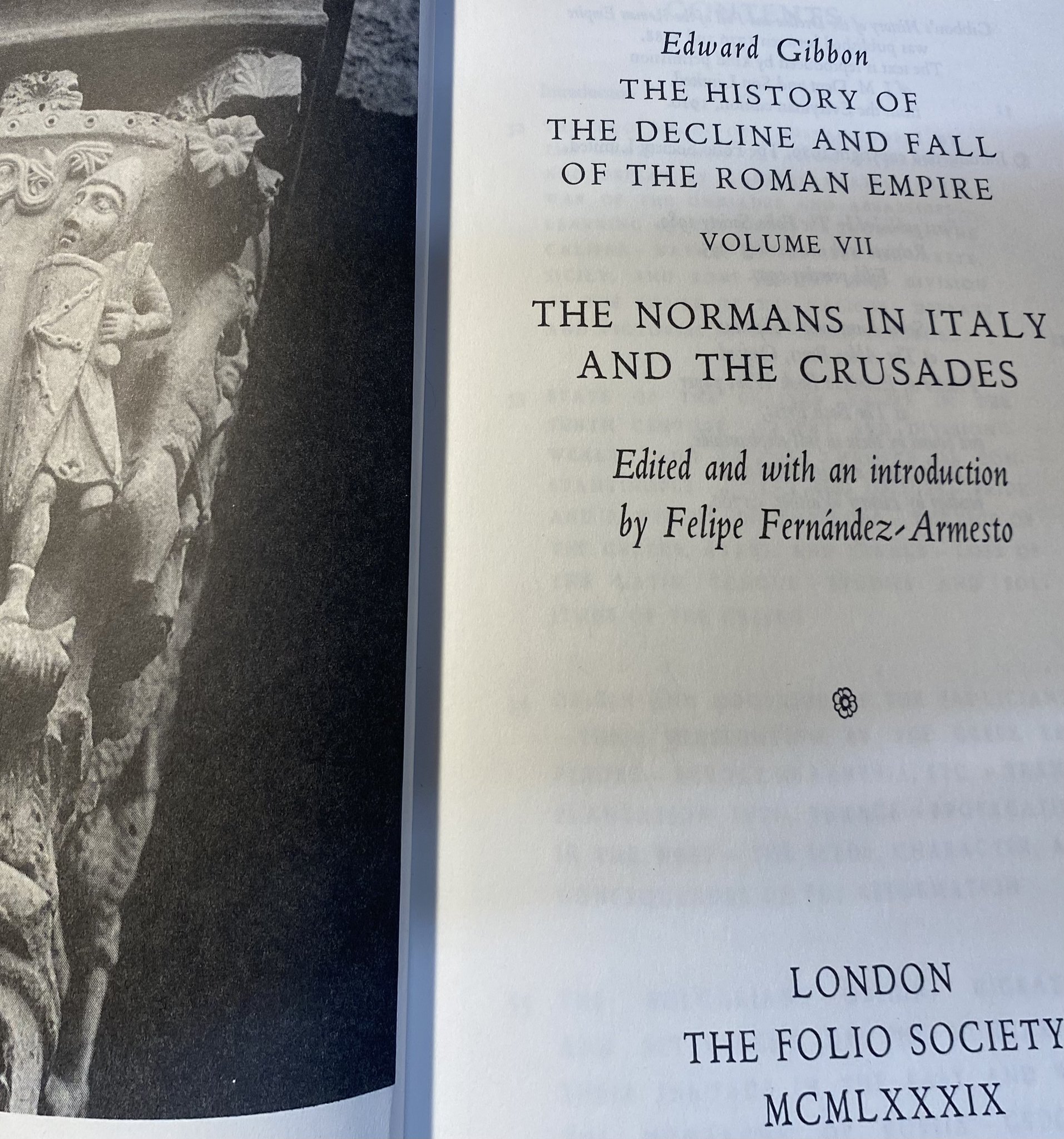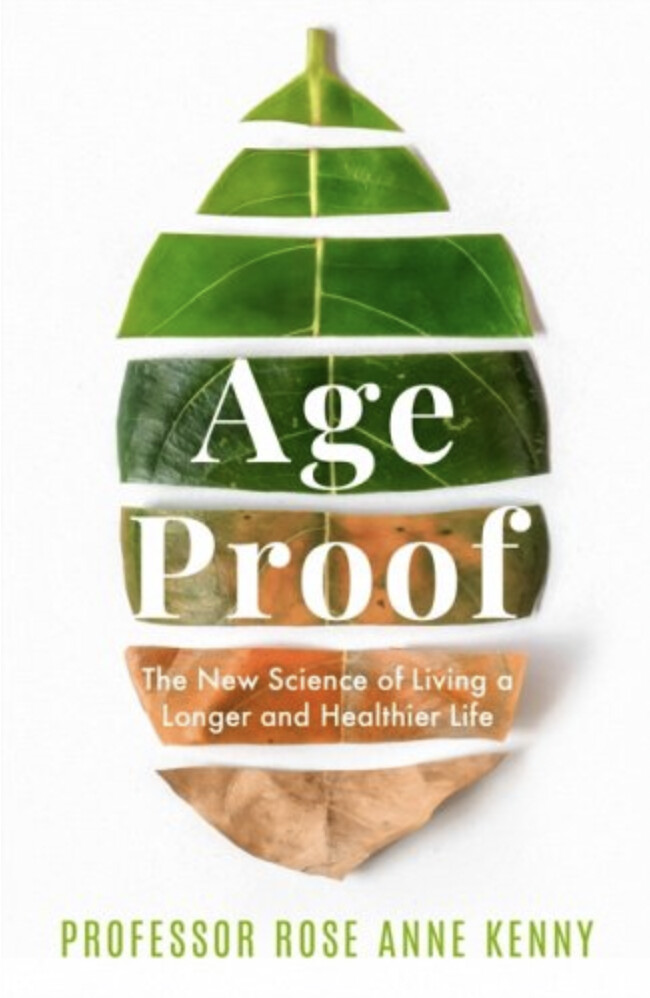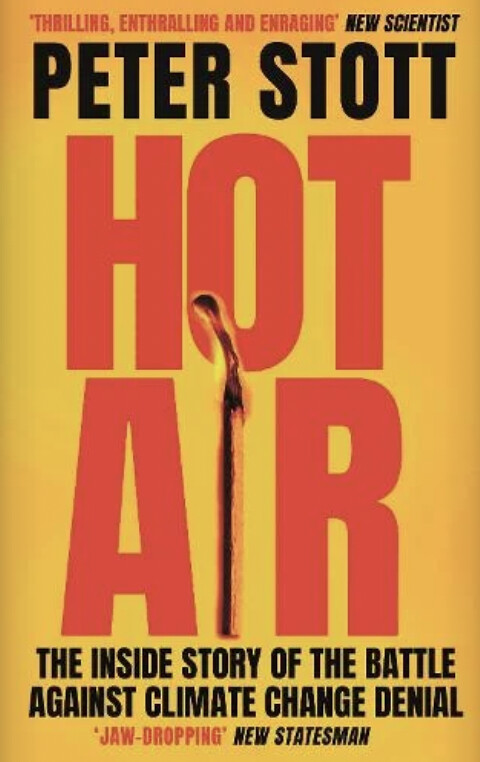In 2022 I consumed devoured read 62 books of various sizes, from slim novels to the multi-volume epic that is Gibbon’s Decline and Fall of the Roman Empire (which I counted as one book). I haven’t read as many books in a year since records began (2014, in my case), and, perhaps, ever. Perhaps there hasn’t been much to watch on the telly. I doubt if I’ll ever match it – since I had COVID I find it harder to concentrate, lose patience more easily and so take longer to finish things.
Here they are, in no particular order, as they say on the game shows.
 Richard Fortey: A Curious Boy It was the author himself who recommended this book to me, as he said — and I hope, if he reads this, he won’t mind my saying so — that aspects of his book reminded him of me. And it did. It was uncanny. The geeky boy who loved nothing better than to roam the countryside; to spend time alone with collections of fossils, or insects, but who loved art, and literature, and music, ideas; was allergic to virtually every sport (Fortey played Tiddlywinks for Cambridge University: I represented the University at Scrabble); and who was drawn, ineluctably, into science. And writing about science. And even the same areas of science. Fortey’s Life: An Unauthorised Biography (perhaps his best known book) plows a furrow adjacent to my own writings. However, I suspect that Fortey and I are less long-lost brothers than exemplars of a type: variants of the same species. There are, to be sure, many people out there who will see themselves in this book, whether or not they became scientists — or, as Fortey nearly did, a historian of science. Or a poet. A joyous read.
Richard Fortey: A Curious Boy It was the author himself who recommended this book to me, as he said — and I hope, if he reads this, he won’t mind my saying so — that aspects of his book reminded him of me. And it did. It was uncanny. The geeky boy who loved nothing better than to roam the countryside; to spend time alone with collections of fossils, or insects, but who loved art, and literature, and music, ideas; was allergic to virtually every sport (Fortey played Tiddlywinks for Cambridge University: I represented the University at Scrabble); and who was drawn, ineluctably, into science. And writing about science. And even the same areas of science. Fortey’s Life: An Unauthorised Biography (perhaps his best known book) plows a furrow adjacent to my own writings. However, I suspect that Fortey and I are less long-lost brothers than exemplars of a type: variants of the same species. There are, to be sure, many people out there who will see themselves in this book, whether or not they became scientists — or, as Fortey nearly did, a historian of science. Or a poet. A joyous read.
 Annie Proulx: Barkskins Like many people, I suppose, I first came across Annie Proulx with her redemptive novel The Shipping News. Later on I read Accordion Crimes. The two novels are totally different in scale and scope, yet both united by their unequalled grasp of the effects of history on the residents of North America, and their spare, unsentimental style. Barkskins follows this tradition. At the very end of the 17th century, two down-and-out youths from the slums of Paris are transported to New France — today’s Nova Scotia and New Brunswick — as indentured labourers. One, René Sel, becomes a woodsman, set with his axe to fell what seems to be the inexhaustible forests of the new continent. His descendants largely belong to the indigenous Micmac people — woodsmen, fishers, trappers, hunters, ever trying to hold on to the threads of their ancient traditions. The other, Charles Duquet, absconds, and eventually founds a mighty dynasty of lumber barons. So begins a walloping great family saga, which could have degenerated into a potboiler, but works because of Proulx’s signature style – pure, terse prose occasionally ornamented by sentences of breathtaking beauty and startling originality. Many of the characters are explored in depth — the Micmac paterfamilias Kuntaw Sel, the timber baroness Lavinia Duke — but most make only fleeting appearances. The real stars are the panoramic landscapes, the trees, the great forests of America, and, later, the world, felled by the human need to conquer and subjugate. If I could find one fault, it is the tendency to dump a lot of historical information into the mouths of her characters as a way of helping you, the reader, catch up with world events. The thing is, you see, Proulx’s best characters struggle when the need to express themselves hits their fundamental inability to carry it through, usually because, in their world — a tough world of physical hard labour to which Proulx’s style is ideally suited — doing counts for a lot more than saying. Think Brokeback Mountain. (Yes, Proulx wrote that, too). Most of her characters work best when they say little. By giving voice to the unlettered and inarticulate she elevates them to a kind of dignity and greatness.
Annie Proulx: Barkskins Like many people, I suppose, I first came across Annie Proulx with her redemptive novel The Shipping News. Later on I read Accordion Crimes. The two novels are totally different in scale and scope, yet both united by their unequalled grasp of the effects of history on the residents of North America, and their spare, unsentimental style. Barkskins follows this tradition. At the very end of the 17th century, two down-and-out youths from the slums of Paris are transported to New France — today’s Nova Scotia and New Brunswick — as indentured labourers. One, René Sel, becomes a woodsman, set with his axe to fell what seems to be the inexhaustible forests of the new continent. His descendants largely belong to the indigenous Micmac people — woodsmen, fishers, trappers, hunters, ever trying to hold on to the threads of their ancient traditions. The other, Charles Duquet, absconds, and eventually founds a mighty dynasty of lumber barons. So begins a walloping great family saga, which could have degenerated into a potboiler, but works because of Proulx’s signature style – pure, terse prose occasionally ornamented by sentences of breathtaking beauty and startling originality. Many of the characters are explored in depth — the Micmac paterfamilias Kuntaw Sel, the timber baroness Lavinia Duke — but most make only fleeting appearances. The real stars are the panoramic landscapes, the trees, the great forests of America, and, later, the world, felled by the human need to conquer and subjugate. If I could find one fault, it is the tendency to dump a lot of historical information into the mouths of her characters as a way of helping you, the reader, catch up with world events. The thing is, you see, Proulx’s best characters struggle when the need to express themselves hits their fundamental inability to carry it through, usually because, in their world — a tough world of physical hard labour to which Proulx’s style is ideally suited — doing counts for a lot more than saying. Think Brokeback Mountain. (Yes, Proulx wrote that, too). Most of her characters work best when they say little. By giving voice to the unlettered and inarticulate she elevates them to a kind of dignity and greatness.
 Alastair Bonnett: Off The Map That a sense of place has meaning to human beings is the theme of this charming book, which, in its collection of 47 cartographic oddities, is an appeal to the importance of topophilia – a love of place. Failure to recognise this leads to consequences that vary from the amusing to the tragic. Among the motley collection of locales is Leningrad, a kind of alter ego to St Petersburg; the two fractally intertwined villages of Baarle-Nassau and Baale-Hertog, one in Belgium and the other in the Netherlands, each no more than a doorpost away; and the multiple enclaves-within-enclaves of the Chitmahals between India and Bangladesh whose inhabitants suffered discrimination from both states (a situation resolved in 2015, after this book was first published). One is reminded of China Miéville’s urban fantasy The City and the City, in which two entirely different cities share the same space (indeed, the author mentions this book). There is the urban landscape of Bonnett’s native Newcastle known only to foxes; the lay-bys known only to doggers; and Sandy Island, a sandbar in the South Pacific known only to cartographers, but which doesn’t actually exist at all. Through it all is a sense of regret that our sense of place has been replaced by a preoccupation with the journey. Old Mecca, for example, has largely been demolished, consisting mainly of the Grand Mosque where pilgrims gather, and the hectares of parking lots and hotels required to accommodate them. And there’s a parking lot at Los Angeles International Airport (LAX) that is a shanty village of campers that house the often transient airline staff, but with no power or running water. At the opposite extreme are the luxury cruise ships that have become a home from home for the super rich. Everywhere — but nowhere. A poignant read.
Alastair Bonnett: Off The Map That a sense of place has meaning to human beings is the theme of this charming book, which, in its collection of 47 cartographic oddities, is an appeal to the importance of topophilia – a love of place. Failure to recognise this leads to consequences that vary from the amusing to the tragic. Among the motley collection of locales is Leningrad, a kind of alter ego to St Petersburg; the two fractally intertwined villages of Baarle-Nassau and Baale-Hertog, one in Belgium and the other in the Netherlands, each no more than a doorpost away; and the multiple enclaves-within-enclaves of the Chitmahals between India and Bangladesh whose inhabitants suffered discrimination from both states (a situation resolved in 2015, after this book was first published). One is reminded of China Miéville’s urban fantasy The City and the City, in which two entirely different cities share the same space (indeed, the author mentions this book). There is the urban landscape of Bonnett’s native Newcastle known only to foxes; the lay-bys known only to doggers; and Sandy Island, a sandbar in the South Pacific known only to cartographers, but which doesn’t actually exist at all. Through it all is a sense of regret that our sense of place has been replaced by a preoccupation with the journey. Old Mecca, for example, has largely been demolished, consisting mainly of the Grand Mosque where pilgrims gather, and the hectares of parking lots and hotels required to accommodate them. And there’s a parking lot at Los Angeles International Airport (LAX) that is a shanty village of campers that house the often transient airline staff, but with no power or running water. At the opposite extreme are the luxury cruise ships that have become a home from home for the super rich. Everywhere — but nowhere. A poignant read.
 James Joyce: Ulysses The premise of Ulysses is simple. It follows a small group of characters through their lives in Dublin, Ireland, during the course of a single day, specifically, 16 June 1904. On the way it challenges, reflects, refracts, subverts, transmogrifies, distorts, compresses, explodes, eviscerates, reassembles, thesaurizes and recycles everything we think we know and understand about how human thought gets processed into language, or words on a page. Like many specimens of Anglo-Irish literature through the ages (by that I mean literature in English by writers who self-identify as Irish), all the way from Jonathan Swift and, as it happens, Thomas Beckett, to Spike Milligan and Roddy Doyle, Ulysses is marked by a strong sense of the absurd. Now, this doesn’t mean that there don’t exist writers from places other than Ireland who are absurdist, nor that there might be writers from Ireland who write in a more conventional style. But — and this isn’t just because the action takes place in Dublin — one does tend to find reading this easier if one’s internal voice takes on an Irish accent, and rather than trying to think too much about what’s going on, simply go with the flow. And it is, in general, a modernist work, which seems odd for a book that was published almost exactly 100 years ago, but if you’ve read the poems of T. S. Eliot, such as The Love Song of J. Alfred Prufrock, you’ll know what to expect. The erudition (especially long quotations in Italian); the rich allusion; sometimes disconcerting contrasts between the internal worlds of the characters and their everyday circumstances; and above all the long, seemingly meaningless and certainly incomprehensible diversions. In the room the women come and go, talking of Michelangelo. What the Actual? Which room? Which women? And what’s with this Michelangelo business? And I thought this bus went to the station? Don’t sweat it, just enjoy the sounds of the words as they roll past: Ulysses is not so much a novel as a prose poem. What Joyce tries to do in Ulysses, apart from simply do things for — oh, heck, I’ll say it — the craic, is chart the interior monologues of characters as they happen. That is, quite literally, a stream of consciousness. So when the main protagonist, one Leopold Bloom, decides to go to a friend’s funeral, we don’t see him — as an omniscient narrator would, directing Bloom as a puppet — putting on his black suit and hat and going to the funeral, making small talk with his fellow mourners as they share the cab ride to the cemetery. Yes, we get that, but at the same time we witness every thought that passes across Bloom’s mind, whether everyday anxieties (he has a business appointment, and he needs to find time to do some shopping) or bubbling up from his subconscious, such as his sexual fantasies, and the state of his bowels, and all in the order in which they would happen — uncurated, unedited, unexpurgated and in real time — with no sense of propriety or logical order. This is no more than honest reportage of how people think, but our mind’s editor is as self-deluding as it is fierce, so what reaches the outside world is usually the cleaned up version — even more so for characters in fiction. But if this is really how people think, it’s a wonder we can make any sense of our lives at all. As far as I know, no writer has worked harder to craft a work in such detail (Ulysses has a particularly knotty textual history and arguments persist to this day about the most authentic version) and yet at the same time remove himself from the process of his own creation. It is a remarkable book. Perhaps the most remarkable I have ever read. Will I read it again? Not on your Molly Bloom. But did I enjoy it? O yes, very yes I did yes yes YES!!
James Joyce: Ulysses The premise of Ulysses is simple. It follows a small group of characters through their lives in Dublin, Ireland, during the course of a single day, specifically, 16 June 1904. On the way it challenges, reflects, refracts, subverts, transmogrifies, distorts, compresses, explodes, eviscerates, reassembles, thesaurizes and recycles everything we think we know and understand about how human thought gets processed into language, or words on a page. Like many specimens of Anglo-Irish literature through the ages (by that I mean literature in English by writers who self-identify as Irish), all the way from Jonathan Swift and, as it happens, Thomas Beckett, to Spike Milligan and Roddy Doyle, Ulysses is marked by a strong sense of the absurd. Now, this doesn’t mean that there don’t exist writers from places other than Ireland who are absurdist, nor that there might be writers from Ireland who write in a more conventional style. But — and this isn’t just because the action takes place in Dublin — one does tend to find reading this easier if one’s internal voice takes on an Irish accent, and rather than trying to think too much about what’s going on, simply go with the flow. And it is, in general, a modernist work, which seems odd for a book that was published almost exactly 100 years ago, but if you’ve read the poems of T. S. Eliot, such as The Love Song of J. Alfred Prufrock, you’ll know what to expect. The erudition (especially long quotations in Italian); the rich allusion; sometimes disconcerting contrasts between the internal worlds of the characters and their everyday circumstances; and above all the long, seemingly meaningless and certainly incomprehensible diversions. In the room the women come and go, talking of Michelangelo. What the Actual? Which room? Which women? And what’s with this Michelangelo business? And I thought this bus went to the station? Don’t sweat it, just enjoy the sounds of the words as they roll past: Ulysses is not so much a novel as a prose poem. What Joyce tries to do in Ulysses, apart from simply do things for — oh, heck, I’ll say it — the craic, is chart the interior monologues of characters as they happen. That is, quite literally, a stream of consciousness. So when the main protagonist, one Leopold Bloom, decides to go to a friend’s funeral, we don’t see him — as an omniscient narrator would, directing Bloom as a puppet — putting on his black suit and hat and going to the funeral, making small talk with his fellow mourners as they share the cab ride to the cemetery. Yes, we get that, but at the same time we witness every thought that passes across Bloom’s mind, whether everyday anxieties (he has a business appointment, and he needs to find time to do some shopping) or bubbling up from his subconscious, such as his sexual fantasies, and the state of his bowels, and all in the order in which they would happen — uncurated, unedited, unexpurgated and in real time — with no sense of propriety or logical order. This is no more than honest reportage of how people think, but our mind’s editor is as self-deluding as it is fierce, so what reaches the outside world is usually the cleaned up version — even more so for characters in fiction. But if this is really how people think, it’s a wonder we can make any sense of our lives at all. As far as I know, no writer has worked harder to craft a work in such detail (Ulysses has a particularly knotty textual history and arguments persist to this day about the most authentic version) and yet at the same time remove himself from the process of his own creation. It is a remarkable book. Perhaps the most remarkable I have ever read. Will I read it again? Not on your Molly Bloom. But did I enjoy it? O yes, very yes I did yes yes YES!!
 Lesley Glaister: Little Egypt This little book was a tonic. I was attracted because it is based around one of my favourite settings — a large country pile in an advanced state of decay, with secrets piled on secrets. Indeed, the house is the title character. Little Egypt is a grand house in the north of England. Like many grand houses, the First World War pretty much did for it, and the spendthrift owners progressively sold off more of the land until it is a small island completely cut off from the rest of the world by a railway line, a dual carriageway and a superstore. Although dilapidated, it is still inhabited by nonagenarian twins Isis and Osiris, whose childhoods had been scarred by their abandonment in the house, during the 1920s, by their Egyptologist parents who were forever in Egypt squandering their wealth on a search for the fabled Tomb of Herihor. As the story opens, Osiris has long ago descended from eccentricity into madness, but Isis is still as sharp as a tack. For years she has been courted by a developer who wants to buy Little Egypt so it can be levelled to make way for yet another superstore. Isis is sorely tempted … until she remembers the awful secrets that the house conceals. The only flaw for me was a section in the middle in which the young twins actually travel to Egypt to see their awful parents. This seemed to go on longer than necessary. Mainly, I think, because those scenes didn’t feature the slowly decaying mansion, against which the tombs and temples of ancient Egypt seemed fresh and new.
Lesley Glaister: Little Egypt This little book was a tonic. I was attracted because it is based around one of my favourite settings — a large country pile in an advanced state of decay, with secrets piled on secrets. Indeed, the house is the title character. Little Egypt is a grand house in the north of England. Like many grand houses, the First World War pretty much did for it, and the spendthrift owners progressively sold off more of the land until it is a small island completely cut off from the rest of the world by a railway line, a dual carriageway and a superstore. Although dilapidated, it is still inhabited by nonagenarian twins Isis and Osiris, whose childhoods had been scarred by their abandonment in the house, during the 1920s, by their Egyptologist parents who were forever in Egypt squandering their wealth on a search for the fabled Tomb of Herihor. As the story opens, Osiris has long ago descended from eccentricity into madness, but Isis is still as sharp as a tack. For years she has been courted by a developer who wants to buy Little Egypt so it can be levelled to make way for yet another superstore. Isis is sorely tempted … until she remembers the awful secrets that the house conceals. The only flaw for me was a section in the middle in which the young twins actually travel to Egypt to see their awful parents. This seemed to go on longer than necessary. Mainly, I think, because those scenes didn’t feature the slowly decaying mansion, against which the tombs and temples of ancient Egypt seemed fresh and new.
 Robert Harris: Conclave To make a thriller out of the election of a new Pope would seem a tall order, given that almost all the characters are elderly men in frocks. Despite an almost total lack of sex or violence, and no car chases Harris weaves a truly unputdownable tale about the election of a (fictional) Pope. The incumbent Pope has died after a long illness during which he has left several loose ends and made several seemingly unusual decisions. It falls to Cardinal Jacopo Lomeli, the Dean of the College of Cardinals, to organise the conclave of 118 of his fractious fellows in which a successor will be elected. Cue a great deal of intrigue, politicking, quotations from the Bible and some jaw-dropping plot twists. It might seem odd to write a novel about the Catholic Church these days that is in any way sympathetic. This one is — sympathetic, that is — because despite nods to the ongoing scandals involving sex abuse by the clergy, and the financial chicanery with which the Pontifical bank accounts have been associated, the protagonist is a fundamentally good man. Lomeli has spent a life in the Church, and despite his own repeated bouts of Imposter Syndrome he is clearly devout, well-liked, tactful and skilled in untangling the various problems that the task of running the conclave throws up. And if after reading this book you don’t know everything there is to know about running a Papal conclave, you’ve been reading a completely different book.
Robert Harris: Conclave To make a thriller out of the election of a new Pope would seem a tall order, given that almost all the characters are elderly men in frocks. Despite an almost total lack of sex or violence, and no car chases Harris weaves a truly unputdownable tale about the election of a (fictional) Pope. The incumbent Pope has died after a long illness during which he has left several loose ends and made several seemingly unusual decisions. It falls to Cardinal Jacopo Lomeli, the Dean of the College of Cardinals, to organise the conclave of 118 of his fractious fellows in which a successor will be elected. Cue a great deal of intrigue, politicking, quotations from the Bible and some jaw-dropping plot twists. It might seem odd to write a novel about the Catholic Church these days that is in any way sympathetic. This one is — sympathetic, that is — because despite nods to the ongoing scandals involving sex abuse by the clergy, and the financial chicanery with which the Pontifical bank accounts have been associated, the protagonist is a fundamentally good man. Lomeli has spent a life in the Church, and despite his own repeated bouts of Imposter Syndrome he is clearly devout, well-liked, tactful and skilled in untangling the various problems that the task of running the conclave throws up. And if after reading this book you don’t know everything there is to know about running a Papal conclave, you’ve been reading a completely different book.
 Martin Cruz Smith: Wolves East Dogs Arkady Renko, dogged Moscow detective (introduced in Smith’s 1981 novel Gorky Park), tries in vain to wrest any kind of order from the collapse of the Soviet Union and the rise of the ‘New Russia’, which is every bit as corrupt as the old. Here he investigates the case of millionaire Pasha Ivanov, who has — apparently — thrown himself to his death from his penthouse apartment. This seems out of character for the cheerful, outgoing Ivanov, whose apartment walls are decorated with pictures of himself with notable figures of the day. ‘He embraced Yeltsin and Clinton and the senior Bush. He beamed at Putin, who, as usual, seemed to suck on a sour tooth’. But Ivanov has been acting out of character of late. And the floor of his walk-in closet is covered in — of all things — salt. Renko’s trail leads nowhere. And more than nowhere, for he finds himself chasing leads in the radioactive exclusion zone around the wreck of the Chernobyl nuclear plant, a region inhabited by a bored militia, desperate scientists, shady scavengers and the peasants who refused to leave after one of the reactors blew up in 1986. Renko finds a kind of respite here, perhaps because he has no formal jurisdiction in Ukraine, even enjoying the rustic hospitality of the peasant farmers. ‘Arkady found the pickles crisp and sour, with perhaps a hint of strontium’. The plot is, eventually resolved, although perhaps rather too quickly and neatly after a series of unlikely coincidences. But a satisfying read nonetheless. Especially at the moment.
Martin Cruz Smith: Wolves East Dogs Arkady Renko, dogged Moscow detective (introduced in Smith’s 1981 novel Gorky Park), tries in vain to wrest any kind of order from the collapse of the Soviet Union and the rise of the ‘New Russia’, which is every bit as corrupt as the old. Here he investigates the case of millionaire Pasha Ivanov, who has — apparently — thrown himself to his death from his penthouse apartment. This seems out of character for the cheerful, outgoing Ivanov, whose apartment walls are decorated with pictures of himself with notable figures of the day. ‘He embraced Yeltsin and Clinton and the senior Bush. He beamed at Putin, who, as usual, seemed to suck on a sour tooth’. But Ivanov has been acting out of character of late. And the floor of his walk-in closet is covered in — of all things — salt. Renko’s trail leads nowhere. And more than nowhere, for he finds himself chasing leads in the radioactive exclusion zone around the wreck of the Chernobyl nuclear plant, a region inhabited by a bored militia, desperate scientists, shady scavengers and the peasants who refused to leave after one of the reactors blew up in 1986. Renko finds a kind of respite here, perhaps because he has no formal jurisdiction in Ukraine, even enjoying the rustic hospitality of the peasant farmers. ‘Arkady found the pickles crisp and sour, with perhaps a hint of strontium’. The plot is, eventually resolved, although perhaps rather too quickly and neatly after a series of unlikely coincidences. But a satisfying read nonetheless. Especially at the moment.
 Kyle Harper: Plagues Upon The Earth. Kyle Harper is an historian, specialising in the history of disease. He is specifically interested in the pandemics that swept through the Roman Empire – events that might have changed the course of history. While thinking about that he reasoned that the entirety of human history, not just the Roman Empire, might have been shaped by contagion. Considered as apes, humans, as it turns out, are uncommonly prone to pestilence. Chimpanzees, for example, are strangers to bodily hygiene (they even like to snack on their own poo) and yet have fewer kinds of germs than humans. Harper’s history is divided into several eras. First came our prehistoric past, when we were mostly plagued by worms. After that came agriculture — an disaster for human health – in which humans began to live in close proximity to their domestic animals, one another, and the excrement of all. Diseases sprang up that exploited the fecal-oral route, and the possibilities of vector-borne transmission. The Iron Age saw a greater concentration of people in cities, adding respiratory diseases to the mix. Oh yes, and cholera. The Iron Age ended with the Columbian Interchange between Africa, Eurasia and the Americas, with dreadful consequences for all concerned. After that, modernity lurched into view with a greater realisation of the importance of hygiene, followed by the germ theory. For the first time, cities were places where people could safely be born, rather than sinks of mortality that required constant immigration to keep their populations from collapse. Today, people are more likely to die from accidents or genetic disorders than the infectious diseases that exerted such a grievous toll. Depending on who’s counting, there are around 200 viral, bacterial, protist, fungal or parasitic diseases that
Kyle Harper: Plagues Upon The Earth. Kyle Harper is an historian, specialising in the history of disease. He is specifically interested in the pandemics that swept through the Roman Empire – events that might have changed the course of history. While thinking about that he reasoned that the entirety of human history, not just the Roman Empire, might have been shaped by contagion. Considered as apes, humans, as it turns out, are uncommonly prone to pestilence. Chimpanzees, for example, are strangers to bodily hygiene (they even like to snack on their own poo) and yet have fewer kinds of germs than humans. Harper’s history is divided into several eras. First came our prehistoric past, when we were mostly plagued by worms. After that came agriculture — an disaster for human health – in which humans began to live in close proximity to their domestic animals, one another, and the excrement of all. Diseases sprang up that exploited the fecal-oral route, and the possibilities of vector-borne transmission. The Iron Age saw a greater concentration of people in cities, adding respiratory diseases to the mix. Oh yes, and cholera. The Iron Age ended with the Columbian Interchange between Africa, Eurasia and the Americas, with dreadful consequences for all concerned. After that, modernity lurched into view with a greater realisation of the importance of hygiene, followed by the germ theory. For the first time, cities were places where people could safely be born, rather than sinks of mortality that required constant immigration to keep their populations from collapse. Today, people are more likely to die from accidents or genetic disorders than the infectious diseases that exerted such a grievous toll. Depending on who’s counting, there are around 200 viral, bacterial, protist, fungal or parasitic diseases that affect infect humans. Harper hadn’t meant to write this book during the COVID pandemic. That he has done underlines the importance of this book, which one can only feel guilty about for finding racily readable, given the subject. Humans, for all our control of the natural world (and perhaps because of it) are ever at the mercy of diseases.
 Francesca Stavrakopoulou – God: An Anatomy. The God of the Bible is a musclebound, physical, jealous street-fighting brawler. He has feet, and hands, and legs, and arms, and a head, and viscera, and dangly bits. This physicality is hard to see, as it has been progressively airbrushed out in successive reworkings of the canonical texts that eventually became the Bible, largely as a result of Christianity which, with its constant worrying about the nature of the Holy Trinity has to pour the corporeal essence of God into Christ, leaving God as no more than some indefinable essence or pneuma, the smile of an ever disappearing Cheshire Cat. The author digs into the original Hebrew of the Bible texts and interprets them as products of the politically turbulent times in which they were written – the closing centuries of the last millennium BCE, when the tiny Yahweh-worshipping kingdoms of Israel and Judah were progressively despoiled, reorganised, destroyed, reorganised again and finally destroyed by waves of Assyrians, Babylonians, Persians, Hellenic Greeks and Romans. She also traces Yahweh back to his roots among a wider Levantine pantheon, as a storm god and son of the High God El, and who eventually took over El’s consort for his own — and shows how Yahweh fits in to the patterns of religion and worship characteristic of the region back to the earliest times. It should be a deeply scholarly work — and it is — but it’s also racy and engaging, and will give pause for thought to anyone who takes the King James Bible literally. Yes, the Bible should be interpreted literally. But in its original Hebrew, which I know from experience, is a very slippery fish, the translation of which will depend a great deal on the moral stance of the translator.
Francesca Stavrakopoulou – God: An Anatomy. The God of the Bible is a musclebound, physical, jealous street-fighting brawler. He has feet, and hands, and legs, and arms, and a head, and viscera, and dangly bits. This physicality is hard to see, as it has been progressively airbrushed out in successive reworkings of the canonical texts that eventually became the Bible, largely as a result of Christianity which, with its constant worrying about the nature of the Holy Trinity has to pour the corporeal essence of God into Christ, leaving God as no more than some indefinable essence or pneuma, the smile of an ever disappearing Cheshire Cat. The author digs into the original Hebrew of the Bible texts and interprets them as products of the politically turbulent times in which they were written – the closing centuries of the last millennium BCE, when the tiny Yahweh-worshipping kingdoms of Israel and Judah were progressively despoiled, reorganised, destroyed, reorganised again and finally destroyed by waves of Assyrians, Babylonians, Persians, Hellenic Greeks and Romans. She also traces Yahweh back to his roots among a wider Levantine pantheon, as a storm god and son of the High God El, and who eventually took over El’s consort for his own — and shows how Yahweh fits in to the patterns of religion and worship characteristic of the region back to the earliest times. It should be a deeply scholarly work — and it is — but it’s also racy and engaging, and will give pause for thought to anyone who takes the King James Bible literally. Yes, the Bible should be interpreted literally. But in its original Hebrew, which I know from experience, is a very slippery fish, the translation of which will depend a great deal on the moral stance of the translator.
And the winner is…
 Edward Gibbon: The Decline and Fall of the Roman Empire (Folio Society Edition). What can one say about this 2,900-page epic? I found it as stately, well-proportioned and elegant as a Georgian mansion. As someone said of Wagner, it has marvellous moments, and rather tedious quarters of an hour — but the overall effect is spectacular. To be sure, it wouldn’t do for every day. Rather like turning up at the supermarket to do the weekly shop in a chauffeur-driven Rolls. But as a prose stylist, Gibbon is (in my opinion) unmatched.
Edward Gibbon: The Decline and Fall of the Roman Empire (Folio Society Edition). What can one say about this 2,900-page epic? I found it as stately, well-proportioned and elegant as a Georgian mansion. As someone said of Wagner, it has marvellous moments, and rather tedious quarters of an hour — but the overall effect is spectacular. To be sure, it wouldn’t do for every day. Rather like turning up at the supermarket to do the weekly shop in a chauffeur-driven Rolls. But as a prose stylist, Gibbon is (in my opinion) unmatched.


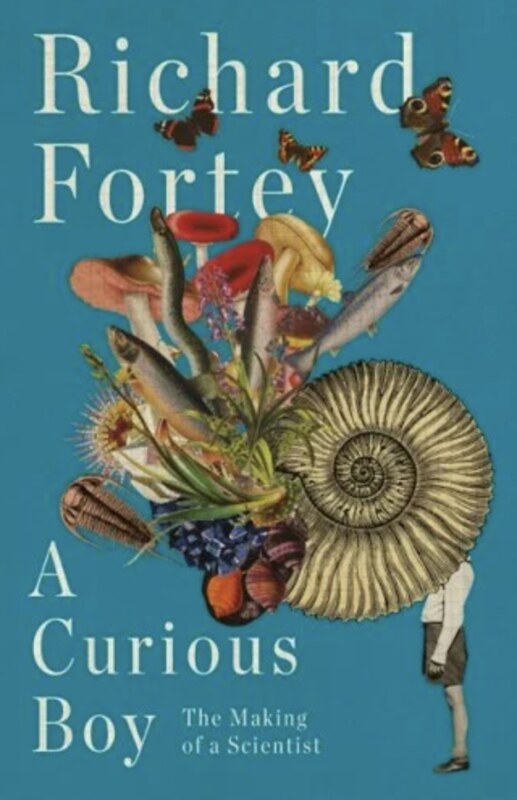

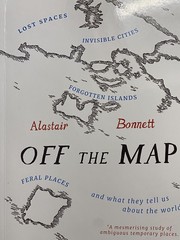
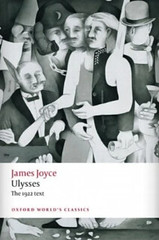

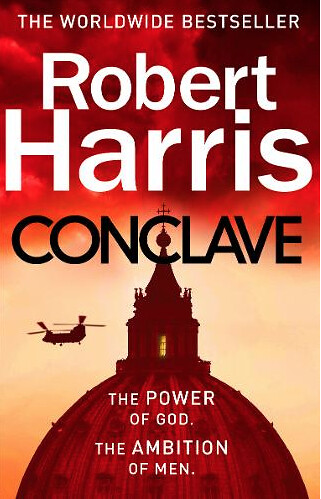
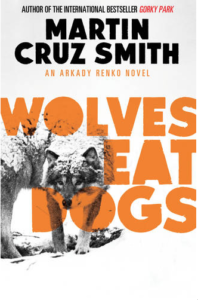 Martin Cruz Smith:
Martin Cruz Smith: 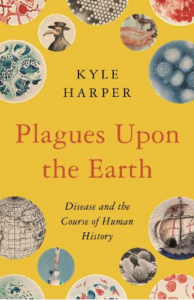 Kyle Harper:
Kyle Harper:  Francesca Stavrakopoulou –
Francesca Stavrakopoulou – 



